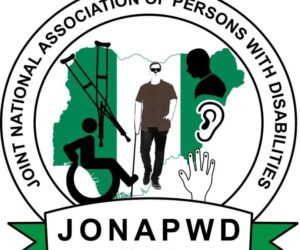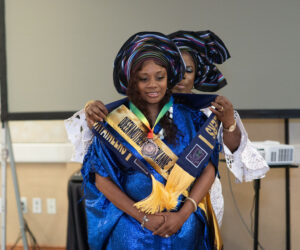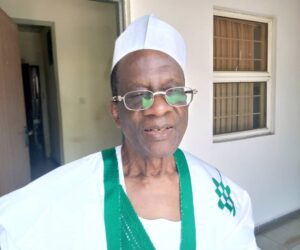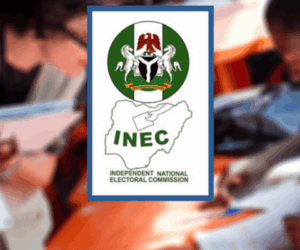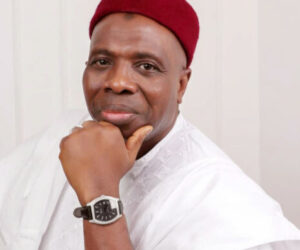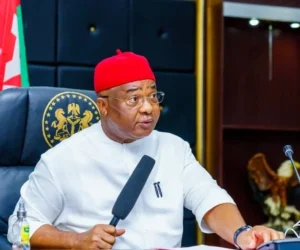The federal government, in collaboration with the British Council, has unveiled the 2025Creative Economy Week, in a bid to harness the potential of the creative sector for national development.
Speaking during a press conference in Abuja, Mukhtar Muhammad, the permanent secretary, Ministry of Art, Culture, Tourism, and Creative Economy, said that the partnership is part of the Nigerian government’s efforts to build a robust ecosystem designed to help create and protect the creativity of Nigerians.
According to Muhammad, the initiative aims to promote knowledge transfer in areas like intellectual property protection, creative entrepreneurship, and digital distribution, while also creating a pathway for Nigerian content to reach global audiences.
Read also: FG targets $100bn GDP contribution, 2m jobs from creative sector by 2030
He said, “This event is a significant marker of the strengthened partnership between Nigeria and the United Kingdom in one of the most dynamic sectors of the 21st century, the creative economy.
“Our gathering is a direct result of a shared conviction that creativity is not merely a cultural asset, but a critical engine for economic growth, job creation, and soft power. For Nigeria, our creative industries, from Nollywood to our music, from our fashion to our visual arts, are a testament to the ingenuity and spirit of our people. They are a primary export and a global cultural force.
“However, raw talent requires structure to achieve its full potential, and this is where a strategic international partnership becomes indispensable. Our collaboration with the British Council, exemplified by this Creative Economy Week, is a model of such a partnership. It is focused on tangible outcomes.”
He also said that in terms of investment, the partnership seeks to build a framework that de-risks and incentivises investment into Nigeria’s creative sectors from both domestic and international sources.
Donna McCowen, country director, British Council, in her remarks, noted that the wider creative economy in Nigeria is experiencing exponential growth, fuelled by the globally influential sectors like film, fashion, and music, which are powered by a new generation of talent whose influence goes beyond the borders of Nigeria.
She explained that with the right policy and enabling culture that focuses on skills development, the potential in the future is something very special.
“For us, creativity changes lives; it builds futures. Creativity is an opportunity to foster collaboration, it builds inclusive economic growth, and it provides opportunities for young people to have access to capacity building and growth. That contributes to the wider growth of Nigeria, and of any country.
Read also: Creative sector can showcase Nigeria’s positive image – Sanwo-Olu
“That is why the focus of the British Council is very much on working with young creatives, emerging artists, and supporting skills development, capacity building for those individuals, as well as the wider ecosystem that they come from, and providing opportunities for market access.
“When we are talking about the wider creative economy sector, our real focus is on youth employability and entrepreneurship. That is essential to what we do in the British Council across all areas, but it is a very important area of work in the wider creative sector,” she said
Also speaking at the event, Harry Kesiena, head of Arts, British Council Nigeria, said that the creative economy is expected to reach $15 billion by 2025, driven especially by Nollywood (film), Afrobeats, music streaming, fashion, and media.
This is as he noted that globally, creative services exports rose from $490 billion in 2010 to $1.4 trillion in 2022, showing how much room there is for Nigeria to expand in exports and international collaborations.
He noted that many creators in Nigeria still operate informally due to weak policy guiding registration, licensing, and IP protections. This, he said, limits monetisation and export readiness.
“Lack of production facilities, studios, distribution channels, and investor access are recurring obstacles. While digital content creation and social media skills are growing, there is a shortage of formal training, especially in technical and business skills.
Read also: France boosts Nigeria’s creative sector with increased investments
“Women and creatives outside major hubs (Lagos, Abuja) have fewer opportunities, less visibility, and more obstacles.
“Through Creative Economy Week, we are providing platforms for skills, exposure, market access, and policy dialogue. We are anchoring high-impact sessions: Film Lab Africa, UK-led masterclasses, investor clinics, IP legal clinics, showcases, and diaspora linkages.
“The creative sector is not only a reflection of Nigerian identity, but an engine for jobs and global exports.”
“With targeted support (skills, IP, finance), Nigeria can turn creative talent into stable livelihoods and export earnings,” he said



